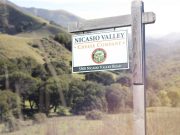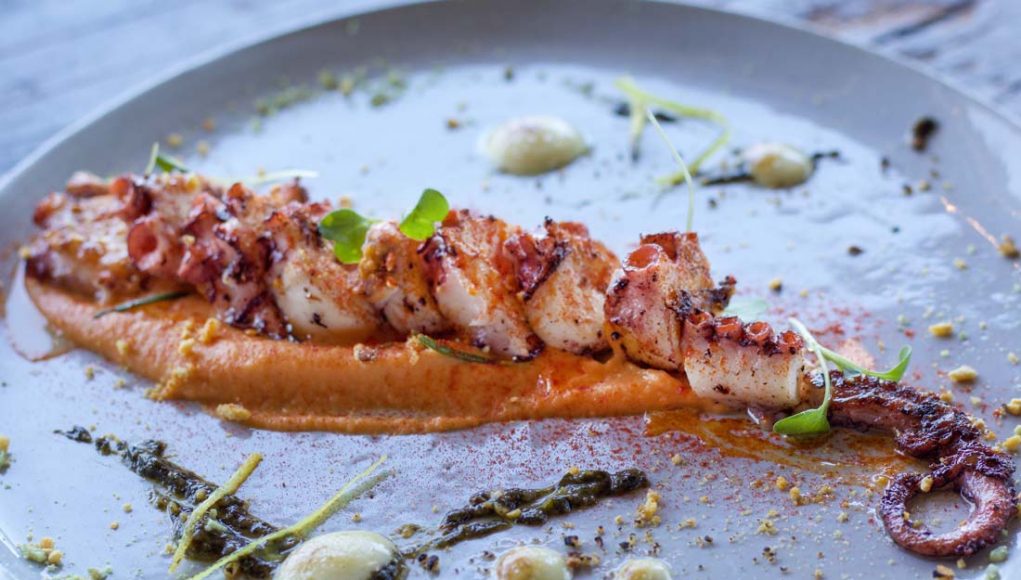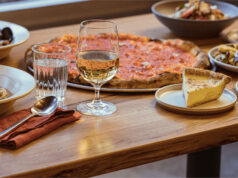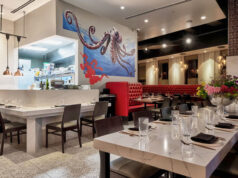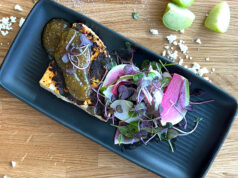Bright eyes and intense energy mingled with humbleness and humor.
With resumes boasting experience at two of the world’s most acclaimed restaurants, El Bulli and Arzak (of Spain), I did not expect to be greeted with such warmth and enthusiasm by
Teleferic Barcelona’s “dynamic duo,” Executive Chef Oscar Cabezas and Chef Rodrigo Vasquez.
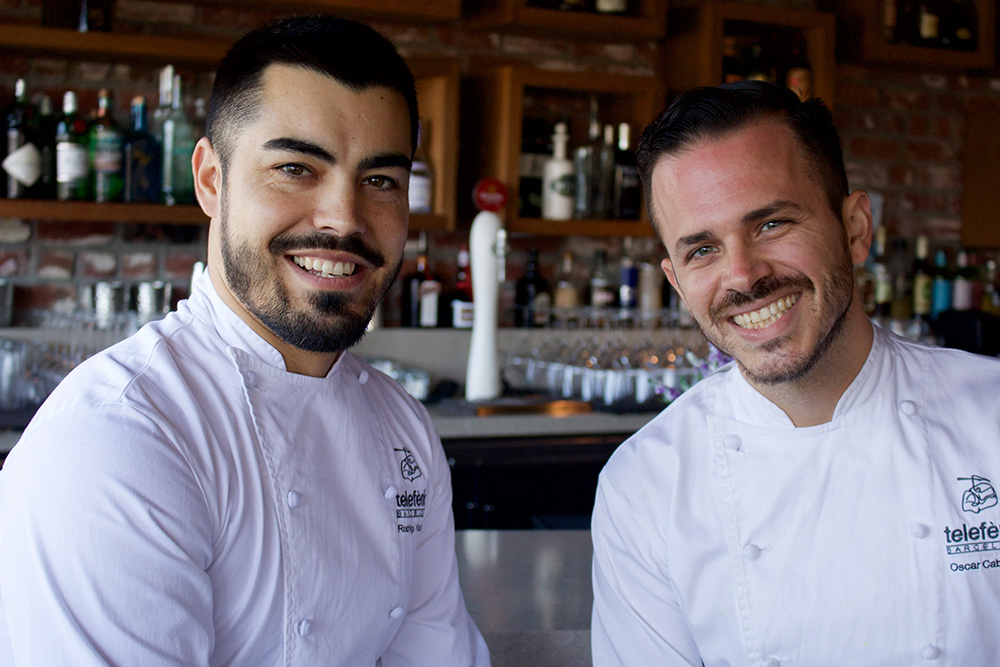
On a mission direct from the motherland of Spain, fueled by the success of the intimate Rondes Restaurant in Sant Cugat del Vallès, and Teleferic in Barcelona, Spain, Chef Oscar and Chef Rodrigo have created a contemporary Catalonian oasis in Walnut Creek, California with Teleferic Barcelona.
 The young, enigmatic pair had much to say on their
The young, enigmatic pair had much to say on their
journey from starving, “chef artists,” to earning a good living, working in a two-chef scenario, and introducing Basque gastronomy (inclusive of mouthwatering, beautiful pintxos, think Spanish Dim Sum), to the oft overstimulated, American palate.
Why Teleferic.
O: Our “little monster,” the thing that drives us crazy, is you know, most people here in the U.S. call us Telerific like ‘It’s so terrific!’ Instead of Teleferic.
R: We don’t really mind, as long as they’re talking about the place.
O: Teleferic is Spanish for cable cars. We thought of the name for Teleferic because people would always describe our first
restaurant as “the place by the cable cars”.
R: We like it too, the idea of cable cars connecting our restaurants. Everything connected from near and far.
Team work.
R: We are like brothers, working all this time together. It’s easy for us.
O: We are very different. We respect each other as professionals. We love each other and we admire each other. (Oscar is the official Executive Chef of Teleferic’s three restaurants), I am more focused on creativity, he is focused on organization. I am focused making the business bigger. He is more about making the business consistent. I’m more focused on recruiting. Rodrigo is more focused on the workers. We know who’s best at what. We try and help the other to be better. We have found this way of working very powerful.
Artisans.
O: Food is the tool we use to express ourselves as artists and where we come from: the tastes of our people and culture. We are truly confident because we are Spanish. We are Catalan. However, we are not traditional in our cooking because we live in a global world. We don’t really care about how we do it, it’s by any means, we are not conditioned by Orthodox traditions. If we have to use Red Miso to express a traditional flavor we will do it.
The American Palate.
R: We like to explain in this way: Say Metallica went to record somewhere and they have the best equipment at their disposal and they record a perfect song. But if you listen to this song at level 3 or level 10 the song dramatically changes. So, in Spain you can do a perfect recipe because you have the perfect local ingredients, but you do not need a high volume (of added flavor) because we love the original taste of the ingredients and recipe. In Spain, we love the flatness, the natural taste of the food. We do not season in Spain. You don’t need it, because the original taste and flavors are really good. Here, we have to put the volume at number ten. We have to bend it to American palates.
O: Most American guests need to feel higher, to have more and more added flavor (on a higher level experientially) than in Spain. Here, I feel like I am a Japanese restaurant in my regional Spanish neighborhood, because we are Spanish in a foreign country. Our competition here is Japanese, Mexican and Italian restaurants. They use a lot of flavor. So if we cook in a regional way, like we would at home, we will be super flat for our guests in the U.S. It took me year and a half to get this. In the beginning we would taste one of our recipes and think, “This is great, this is super original,” but guests would say, “There’s no f-ing flavor in this. Tell the chef he doesn’t know how to season!”
R: It was so frustrating in the very beginning. We are so close to Mexico here so everything is so spicy, you know… and someone comes here and they think ‘Oh this is a Mexican restaurant,’ and they look for these flavors.
Always Learning.
O: Our guests have given us great feedback. We try and stay humble and give them an alternative view. For me and Rodrigo the most important thing is learning.
R: All the time.
O: So what we try to do now is keep our unique message, but stay open to all the diversity that our culture allows, which is a lot because we are a melting pot.





